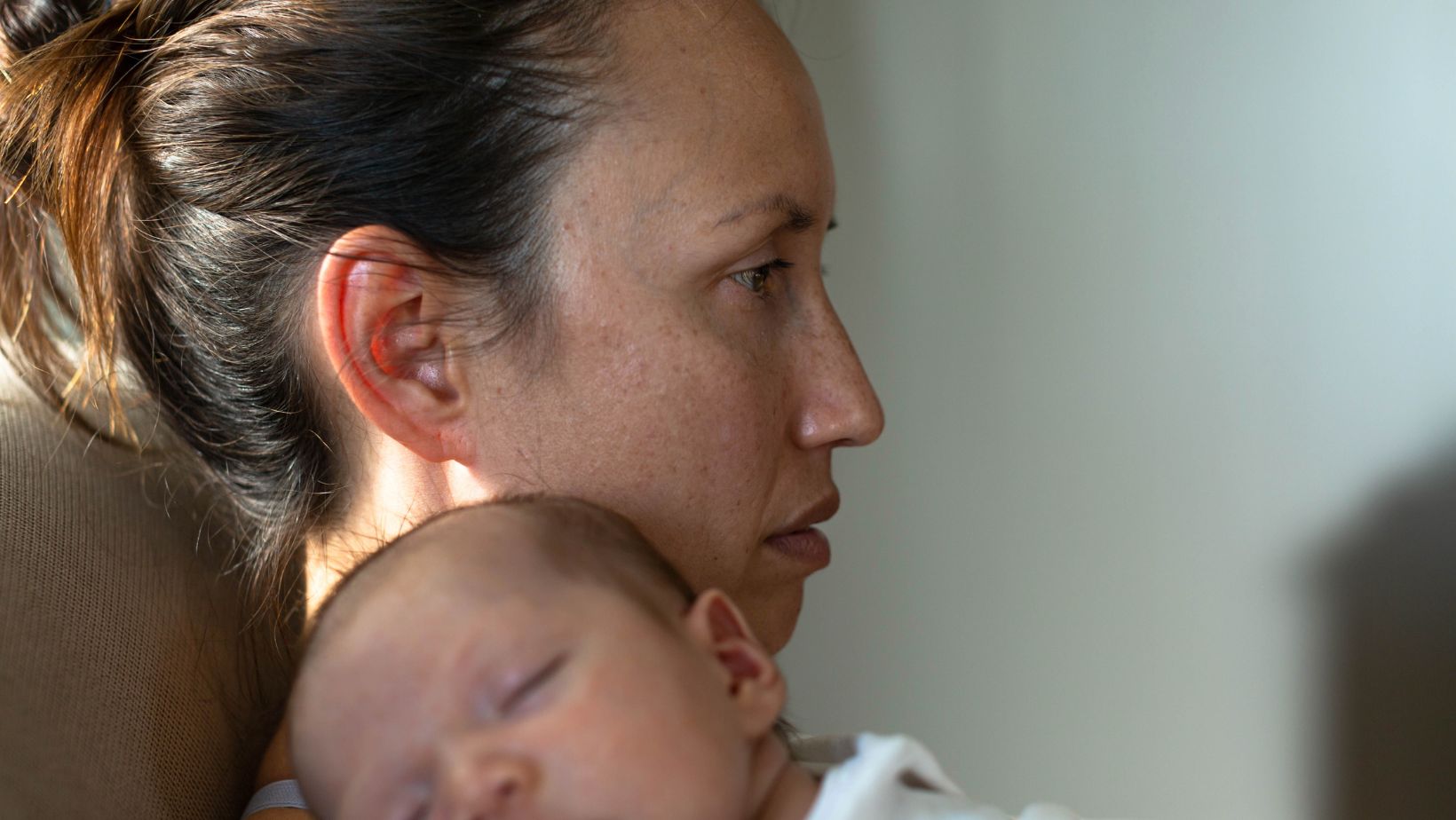Dealing with postpartum depression (PPD) can be overwhelming, but knowing that you are not alone gives solace. According to the NIH, the global prevalence of PPD is between 10% and 20%. Despite being a progressive nation, the US also has a high rate of 13%, making PPD one of the most widely prevalent adverse outcomes of pregnancy.
The constant mood swings and negative emotions can keep you from enjoying the bliss of motherhood. You never seem to settle down and experience the joy of raising a baby. The feelings may worsen and lead to severe health implications if you don’t seek a solution.
With practical strategies and support, it is possible to overcome PPD and reclaim your well-being. Here are a few proven ways to beat the blues.
Adopt a Healthy Lifestyle
A balanced lifestyle is the key to mental health, especially for new moms. Balanced nutrition is a good start when it comes to managing depressive symptoms.

A Frontiers study highlights the role of foods such as fiber, fruit, vegetables, yogurt, and seafood. Countries with higher consumption of these foods, on average, report lower levels of PPD. Vitamin D, iron, tryptophan, and tyrosine boost mood and resilience.
Moderate-intensity exercise is another factor that can help bring life on track. Indulge in activities such as brisk walking, yoga, or aerobic routines. An exercise routine of at least 30 minutes most days of the week can reduce depression scores.
Additionally, new moms ensure good hydration as it supports recovery and overall mental health. A healthy lifestyle improves your mood and increases your energy, making it easier to care for yourself and your baby.
Get as Much Rest as Possible
The Sleep Foundation notes that sleep deprivation and new parenthood go hand in hand. Exhaustion due to missed sleep contributes to symptoms of depression and anxiety among parents. Eventually, this can have a lasting negative impact on both parents and newborns. Better sleep can prevent these issues and ensure a smooth postpartum journey.
Fortunately, a few simple strategies can help you fulfill your sleep goals and keep PPD at bay. The first rule is to sleep when your little one sleeps. Even short naps during the day can help offset nighttime disruptions.
Consider sharing nighttime duties. Ask your partner to help with nighttime feedings or diaper changes. Limit non-essential tasks and focus on the essentials. Also, let go of the pressure to have a perfect home or routine.
Know When to Seek Help
PPD is a medical condition, not a sign of personal weakness. Not treating it as one can be the worst mistake. You must be open to seeking help before the problem worsens and affects other dimensions of your health and life.
Talk to a doctor if your symptoms last more than two weeks. Do the same if they are severe or hinder your ability to care for yourself or your baby. Whether you speak with an OBGYN in Madison, WI (or anywhere in your area), or a mental health professional, the right support can provide counseling, therapy, or medication tailored to your needs.

A psychiatric mental health nurse practitioner can also offer help and support to women dealing with postpartum depression. Many nursing professionals pursue MSN-PMHNP online degrees to get their career and earning potential to the next level. The benefit of online degrees is that they can be pursued along with one’s regular job.
According to Spring Arbor University, the program equips professionals with advanced clinical skills to assess and diagnose mental health conditions. They can also provide effective intervention, and are more accessible than therapists.
Connect with Other Moms
Isolation can intensify feelings of sadness and anxiety for new moms. Staying alone will only worsen the problem. PostpartumDepression.org highlights the importance of support groups for dealing with PPD. These groups host meetings for women affected by baby blues. Such meetings are led and moderated by experts like therapists, psychiatrists, or mental health professionals, like specialist nurses.
Building connections with other mothers offers understanding, validation, and practical advice. Peer-support programs, such as the Alma program, pair new moms with trained mentors who have experienced PPD. Talking with other mothers helps break the cycle of isolation and normalizes your feelings.
With support groups, you get a chance to learn from others. Listening to stories of recovery can give you hope and show you the way ahead. Peer support is proven to reduce depression and make recovery faster and less lonely.
FAQs
When Does Postpartum Depression Peak?
Postpartum depression can set in right after birth and at any time within the first year after childbirth. However, it most commonly peaks within the first few weeks to three months postpartum. Symptoms may develop gradually or suddenly, and the intensity can vary from woman to woman.
What Not To Do During Postpartum Recovery?
PPD recovery is a complex journey and requires awareness regarding things to avoid. Avoid withdrawing from loved ones or support networks. Never overlook the red flags as failing to seek help can prolong recovery and worsen symptoms. Most importantly, avoid striving for perfection in household tasks or parenting. Scale back expectations and postpone big decisions or changes, as additional stress can hinder recovery.
Why Am I Struggling So Much Postpartum?
Struggling after childbirth is normal and many women encounter these feelings. These can result from a combination of hormonal changes, sleep deprivation, physical recovery, and the emotional adjustment to motherhood. Postpartum depression is a medical condition and not a personal failure, so you should not feel guilty about it.
Overcoming PPD requires commitment and resilience, and it will not happen without help. As a new mom, you need to understand that these feelings do not mean that you love your baby less. Seek help to find your way back and enjoy every moment of motherhood as you should.












